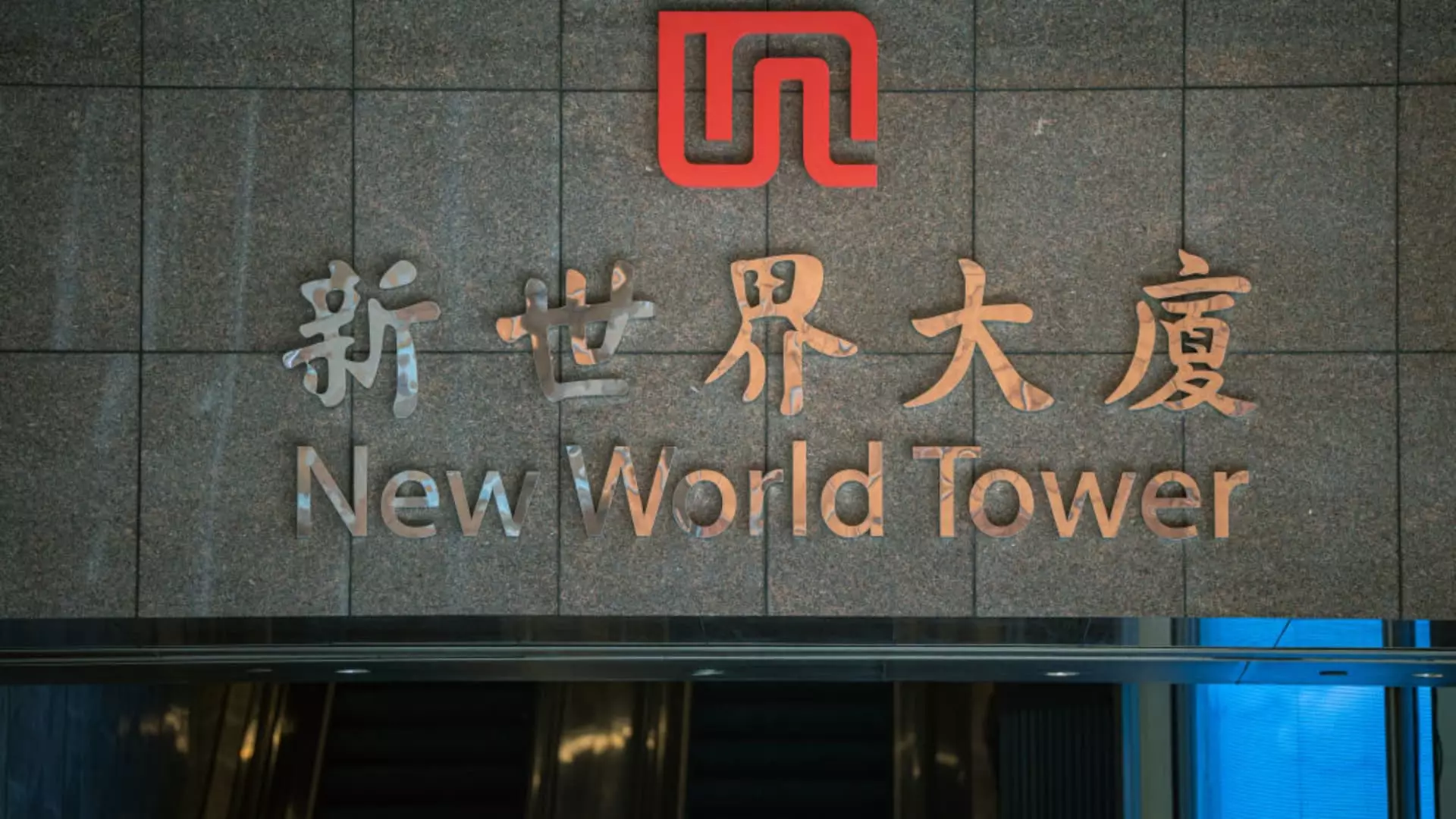The unexpected resignation of Adrian Cheng from New World Development has sent shockwaves through the Hong Kong stock market, spotlighting the volatile nature of corporate governance in family-owned enterprises. Following his announcement, shares of the well-known development company climbed by an impressive 23%. The abrupt cessation of trading the previous day suggested something significant was brewing, ultimately aimed at addressing critical financial issues that have recently plagued the firm. Cheng’s decision to step down from operations to focus on public service commitments raises questions about the internal dynamics of companies controlled by influential families and their ability to weather market turbulence.
Eric Ma Siu-Cheung’s ascension as the new CEO marks a pivotal moment for New World Development, as it is uncommon for specialists outside the founding family to take the helm. This strategic shift carries both risks and opportunities. Ma’s proven track record as Chief Operating Officer might inspire confidence among stakeholders; however, fresh leadership also implies an urgent need for revitalization within a company that recently projected a staggering loss of up to HK $20 billion (approximately $2.6 billion) for the last financial year. This substantial deficit can be attributed to multiple factors, including a downturn in property sales and high levels of debt—issues that continue to cloud the prospects for many developers in both Hong Kong and mainland China.
New World Development’s plight is not an isolated incident; it reflects the prevailing struggles of the property sector amid broader economic challenges within the region. Esteemed economist Alicia Garcia-Herrero has pointed out that the reliance on traditional family leadership may hinder these companies during tough market conditions, advocating for more meritocratic governance structures. Indeed, the ramifications of poor corporate governance have never been more evident, as stakeholders continuously seek assurance that top management is equipped to handle a crisis.
Contributing to the improvement of New World’s share price are recent stimulus efforts by Chinese authorities aiming to rejuvenate the economy. Just days before Cheng’s resignation, the central bank set new measures intended to stabilize both the financial markets and the real estate sector—calls for enhanced fiscal and monetary support suggest that the government is keenly aware of the systemic issues at play. The optimistic tone from Chinese leadership provides a glimmer of hope, not just for New World, but for a sector that has witnessed a pervasive decline.
Implications for Corporate Governance in Hong Kong
As we examine the current market developments, the response to Cheng’s resignation signifies a critical juncture for corporate governance practices, particularly within family-operated businesses in Hong Kong. The market’s reaction indicates that shareholders may be chafing against the status quo, yearning for quality leadership that transcends familial ties. This discontent among investors could push tycoons to reconsider their traditional management structures and invest in talent that can adapt to evolving market demands. The current environment serves as a reminder that the necessity for effective governance is not just an academic concept but a crucial element for sustained business success, particularly in turbulent markets.
The management changes at New World Development encapsulate broader themes of economic resilience and the importance of effective leadership. As the company navigates its financial challenges under new guidance, the implications for both corporate governance and market confidence will be closely scrutinized in the months to come.

